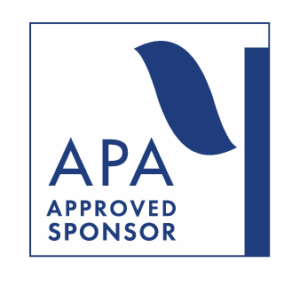
- This event has passed.
The Distinction Between Conversion Therapy and Psychotherapy for Those Experiencing Gender Dysphoria
October 25 @ 6:00 pm - 7:30 pm EDT
Psychiatry has a problematic history in terms of its approach to homosexuality. This history is often invoked as a warning that we must not make the same mistakes in the way we respond to people experiencing gender dysphoria and those who identify as trans. A brief review of the 20th-century psychoanalytic approach to homosexuality will show how psychoanalysis was used as a form of conversion therapy for individuals with same-sex attraction. This historical context will highlight the important differences between contemporary psychotherapy for those experiencing gender dysphoria and practices historically associated with gay conversion therapy. The presentation will consider how therapists might best work with individuals who are struggling with ambivalently held parts of the self, whether related to same-sex desire or gender. Depth psychotherapies aim to support the acceptance and integration of parts of the self that are unwanted or difficult to tolerate. Concerns have been raised that the gender affirming model may inadvertently preclude this process of integration by reinforcing internal divisions. This possibility warrants serious professional consideration. Finally, the presentation will reflect on how professional certainty and arrogance, coupled with the rejection of science, have historically led to harm for many homosexual and bisexual people. If similar dynamics are at play today, then without careful reflection, the mental health field is at risk of repeating the very harms it is eager to avoid.
Learning objectives:
- Identify and summarize historical factors in psychiatry’s treatment of homosexuality, including they ways in which psychoanalysis was used as a form of conversion therapy.
- Differentiate between historical conversion therapy practices and contemporary psychotherapeutic approaches for individuals experiencing gender dysphoria.
- Explain the basic goals of psychotherapeutic work with people with ambivalently held parts of the self and how the gender affirming model can work against good psychological outcomes.
- Compare the response of mainstream psychiatry to homosexuality with its current refusal to acknowledge the weak evidence base for gender affirming medical treatments
Presenter Bio:
Dr. Roberto D’Angelo is a training and supervising analyst at the Institute of Contemporary Psychoanalysis, Los Angeles. He has written and contributed to publications raising ethical questions about gender-affirming therapies. Dr. D’Angelo has an interest in non-medicalized approaches to gender issues and has written about the psychotherapeutic treatment of gender dysphoria. He is in private practice in Sydney and Byron Bay, Australia, where he sees adolescents and adults with gender issues.

Therapy First has been approved by NBCC as an Approved Continuing Education Provider, ACEP No. 7505. Programs that do not qualify for NBCC credit are clearly identified. Therapy First is solely responsible for all aspects of the programs. This webinar provide 1.5 hours of CE credits.

Therapy First is approved by the American Psychological Association to sponsor continuing education for psychologists. Therapy First maintains responsibility for this program and its content.
Therapy First webinars are open to the public. Parents, clinicians, teachers, and all those interested are welcome to attend. Psychologists and professional counselors are eligible to earn 1.5 CE credits for participating in the live webinar.
Please double check the time and timezone before purchasing- all times are in Eastern (US). A recording of the webinar will be made available to Therapy First members only. Please consider joining us as a member if you would like access to the recording.
All ticket purchases are final.
